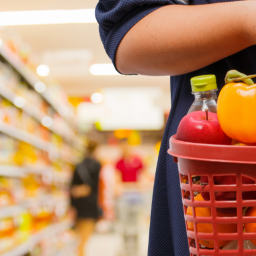
Overall, more shoppers have increased their beer, wine and spirits consumption than have reduced it, with the off-trade benefitting from greater at-home consumption – and a consequent challenge around sales mix for drinks suppliers.
The return of tighter restrictions for much of the country will inevitably see the continuation of this trend. In any case, we anticipate many consumers will opt to stay at home more – whether to avoid busy places or to save money; and the off-trade will continue to benefit from this.
Using our latest research, we highlight five trends that have impacted the BWS category since the pandemic began:
£14bn wiped off the value of the UK pub sector in 2020
Total sales for the UK pub market in 2020 reached just £9bn in 2020, a decline of -61% vs. 2019 and equating to £14bn in lost revenue due to enforced closures, capacity restrictions and curfews. In addition to further lockdowns impacting trade, consumers remain concerned about risk aversion as well as their personal finances.
Consumers take advantage of cheaper drinks at home
The differential in prices across the on- and off-trade has always existed, but as consumers spend more time at home and with increased pressure on household budgets, the British public has been sensitised to this price gap. We’ve witnessed some significant changes in consumer behaviour due to the pandemic, including increased scratch cooking and more online shopping. However, many consumers prefer to buy alcohol in a physical store, with convenience stores in particular benefitting from this reticence to buy BWS online.
The interplay between in- and out-of-home and how this will evolve
Lockdown has led to an increase in the dominance of grocery retail as the source of meals, with fewer alternatives available due to the closure of much of the hospitality industry. The delivery occasion has also risen in importance and offers an opportunity for BWS as a small minority of delivery occasions currently include alcohol.
The recovery of the on-trade and future opportunities
Eased restrictions will be crucial for 2021 growth and whilst we anticipate some recovery of lost value, we do not expect the pub sector to return to its previous value until 2024. Innovative operators are focusing their energies on digital innovations; delivery/takeaway services and the creative use of outdoor space and events to deliver experiences that can’t be replicated at home.
Off-trade opportunities include Low2No and hard seltzers
The on-trade’s loss has inevitably been the off-trade’s gain with huge growth of alcohol for at-home consumption reported in 2020. Innovation is critical to meet the consumer need for variety and experimentation and two sub-categories stand out. Low2No alcohol products remain an opportunity, especially amongst younger consumers attracted by its health credentials as well as being a cheaper drink option. Meanwhile the portability of ready-to-drink hard seltzers has tapped into a key legacy of the pandemic, outdoor socialising.
FREE WHITEPAPER
On-Trade/Off-Trade: a Balancing Act for Drinks’ Suppliers: In this whitepaper we consider how consumers have responded to government restrictions in 2020 in terms of their drinking habits and the interplay between the on- and off-trade sectors. We also look forward, thinking about the recovery of the pub sector and consumers’ intentions for the future.








